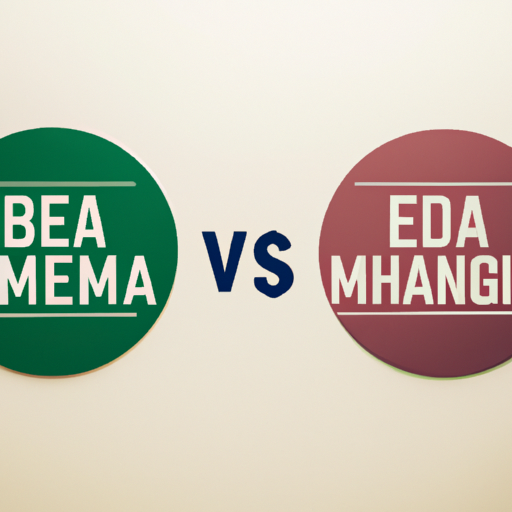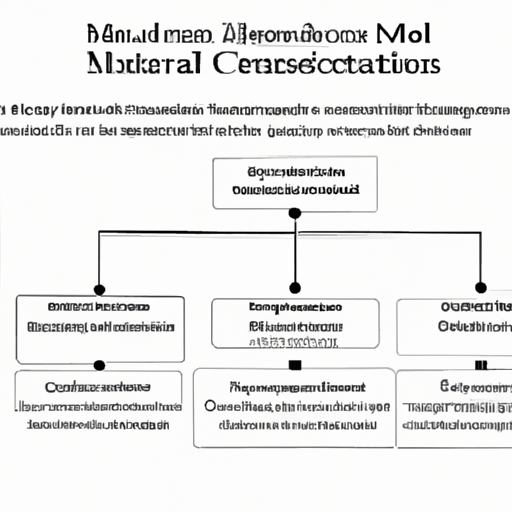MBA vs EMBA: Key Differences, Tuition Costs, and How to Choose the Right Program

MBA vs EMBA Differences: Tuition, Curriculum, and Career Outcomes
When considering a graduate business degree, many professionals face the dilemma of choosing between a Master of Business Administration (MBA) and an Executive MBA (EMBA). Both programs offer unique advantages and cater to different audiences. In this comprehensive guide, we will explore the differences between MBA and EMBA, focusing on tuition costs, curriculum structure, admission requirements, and career outcomes. Whether you are an aspiring business leader or an experienced executive, understanding the nuances of MBA vs EMBA tuition and program format is critical to making the right choice for your career advancement.
What is an MBA?
The Master of Business Administration (MBA) is a globally recognized degree designed for early- to mid-career professionals who seek foundational business knowledge and leadership skills. MBA programs are typically offered as full-time, part-time, or online formats, making them accessible for recent graduates and professionals seeking a career change.
- Target Audience: Professionals with 2-5 years of work experience
- Program Duration: 1-2 years (full-time); up to 3 years (part-time)
- Curriculum Focus: Core business disciplines (finance, marketing, operations, strategy, entrepreneurship)
- Learning Style: Case studies, group projects, internships, networking events
What is an Executive MBA (EMBA)?
The Executive MBA (EMBA) is tailored for senior professionals, managers, and entrepreneurs who wish to elevate their leadership and strategic decision-making capabilities while maintaining their current careers. EMBA programs are structured to accommodate busy schedules, with classes typically held on weekends or in intensive modules.
- Target Audience: Executives, senior managers, professionals with 8-15+ years of experience
- Program Duration: 12-24 months (part-time, modular)
- Curriculum Focus: Advanced leadership, global strategy, executive communication, innovation
- Learning Style: Peer learning, real-world projects, executive coaching, international residencies
MBA vs EMBA Tuition: Key Differences
One of the most significant factors when choosing between an MBA and an EMBA program is tuition cost. Understanding the financial investment required for each program is essential for planning your educational and career journey.
MBA Tuition Fees
- Average Tuition: $40,000 to $120,000 (varies by institution and program format)
- Additional Costs: Living expenses, books, networking events, possible relocation
- Financing Options: Scholarships, student loans, employer sponsorship, assistantships
EMBA Tuition Fees
- Average Tuition: $80,000 to $200,000 (often higher than traditional MBAs)
- Additional Costs: International modules, executive seminars, travel expenses
- Financing Options: Employer sponsorship, self-funding, executive grants
EMBA programs generally have higher tuition fees due to their premium format and additional executive-level resources. However, many employers offer sponsorship for EMBA candidates, recognizing the value these programs bring to organizational leadership.
Curriculum and Program Structure
The structure and content of MBA and EMBA programs reflect the differing needs of their students. Below is a comparison of their key features:
| Aspect | MBA | EMBA |
|---|---|---|
| Schedule | Full-time, part-time, online | Weekend, modular, flexible |
| Work Experience Required | 2-5 years | 8-15+ years |
| Class Profile | Diverse, early professionals | Experienced executives |
| Networking | Student clubs, career fairs | Peer networking, executive events |
| Career Support | Career services, internships | Executive coaching, leadership development |
Admission Requirements: MBA vs EMBA
While both MBA and EMBA programs are competitive, their admissions criteria reflect the differences in target candidates.
MBA Admissions
- Bachelor’s degree from an accredited institution
- 2-5 years of professional experience
- GMAT/GRE scores (sometimes optional for experienced candidates)
- Essays, recommendation letters, interviews
EMBA Admissions
- Bachelor’s degree
- 8-15+ years of work experience (with managerial responsibility)
- GMAT/GRE often waived in favor of leadership experience
- Employer support letter (sometimes required)
- Personal interview, executive assessment
Career Outcomes and Networking Opportunities
The career outcomes for MBA and EMBA graduates differ according to their backgrounds and aspirations.
- MBA Graduates: Often pursue career changes, promotions, or entrepreneurial ventures. Common roles include consultant, product manager, financial analyst, or startup founder.
- EMBA Graduates: Typically advance into executive leadership roles, C-suite positions, or board memberships. Many leverage their expanded networks to drive organizational growth or transition into new industries.
Both programs provide powerful alumni networks and lifelong career support, but the EMBA network tends to be more senior and globally connected due to the cohort’s experience.
How to Choose: MBA or EMBA?
Deciding between an MBA and an EMBA comes down to your career stage, professional goals, time commitment, and financial resources. Here are some guiding questions:
- Are you earlier in your career or seeking a significant change? MBA may offer broader options and support.
- Are you an established leader seeking to sharpen your executive skills? EMBA is tailored for experienced professionals.
- Is employer sponsorship available? Many companies fund EMBA programs due to the immediate ROI.
- Are you able to take time off work? If not, EMBA’s modular format offers flexibility.
- What is your budget for tuition and related expenses? Compare program costs and funding opportunities.
Consider your long-term objectives and consult with alumni or program advisors to make an informed decision.
Frequently Asked Questions about MBA vs EMBA Tuition
- Is an EMBA more expensive than an MBA?
- Yes, EMBA tuition is generally higher than traditional MBA programs due to the executive format and premium resources.
- Can I work while studying for an MBA or EMBA?
- EMBA programs are designed for working professionals, while full-time MBAs often require a career break. Part-time and online MBAs offer more flexibility.
- Are scholarships available for EMBA programs?
- Some schools offer scholarships, but employer sponsorship is the most common funding source for EMBAs.
- Which program offers a better ROI?
- Both offer strong returns, but the ROI depends on your career goals, industry, and the networking opportunities you leverage.
Conclusion: Making the Right Investment in Your Future
Choosing between an MBA and EMBA is a significant decision that hinges on your experience, career stage, and professional aspirations. By understanding the key differences in tuition, curriculum, and career outcomes, you can select the program that best supports your long-term goals. Whether you pursue an MBA for a career pivot or an EMBA for executive advancement, both degrees are powerful tools for leadership and organizational impact.


